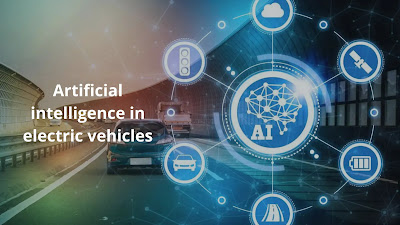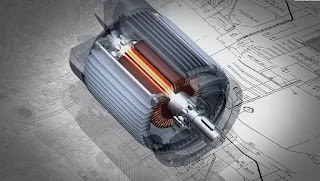New battery technologies that could power our future and EVs.
BY AFZAL YOUSAF
World needs power to run and in coming future it is sustainable and renewable energy that plays pivotal role for clean and greener Earth. Currently our energy storage strategy are shaped by Li- ion cells as it is used worldwide. But what changes can we expect in our energy storage strategy in coming future???
In this article you can read about the new battery technologies that could drive future energy requirements.
As Battery/ Li ion cell manufacturers are constantly experimenting to improve cell chemistry to make cheaper, denser, lighter and more powerful batteries that transforms future energy storage scenario. From the latest report and articles, the upcoming new technologies in energy storage are:-
- New Generation Li ion
- Lithium Sulfur
- Graphene Battery
- Solid-State
- Super capacitors.
Lithium ion technology we currently depended will reach an energy limit in coming years and researchers are working on to improve this technology. Recent discoveries of new families of disruptive active materials should unlock present limits. In current technology, energy storage and release in Li ion is due to the movement of lithium ion from positive to negative electrode through electrolyte. Positive electrode acts as the initial lithium source and the negative electrode as the host for lithium. Researchers are working on this chemistry to upgrade the Li ion technology.
New innovative components in Li ion can store more lithium in positive and negative electrodes and will allow for the first time to combine energy and power. Experts believes that silicon nanowire technology is one of the future Li ion technology. These can unlock the present limit faced by Li ion technology.
Advantages
- Li ion technology has highest level of energy density among all other energy storage technology.
- Performances such as fast charge or temperature operating window (-50°C up to 125°C) can be fine-tuned by the large choice of cell design and chemistries.
- low self-discharge and very long lifetime and cycling performances, typically thousands of charging/discharging cycles.
Lithium sulfur chemistry is different from Li ion. In Li-ion batteries, the lithium ions are stored in active materials acting as stable host structures during charge and discharge. In case of lithium sulfur, there are no host structures. While discharging, the lithium anode is consumed and sulfur transformed into a variety of chemical compounds; during charging, the reverse process takes place. Sulphur is positive electrode and metallic lithium in negative electrode. Its technology is based on solid state electrolyte.
Advantages
- Uses very light and active materials.
- Energy density is four times higher than Li ion.
- Longer life time than Li ion
- Technology is getting matured day by day.
Graphene batteries are an emerging technology which allows for increased electrode density, faster cycle times, as well as possessing the ability to hold the charge longer thus improving the battery's lifespan. Graphite batteries are well-established and come in many forms. They have a capacity that is approximately five times more than that of conventional batteries.
When in testing, there was no change in capacity even after 400 charge cycles. They are safer and more reliable than traditional batteries. They are eco-friendly and contain a lesser amount of Carbon.
Advantages
- Higher capacity graphene battery pack of the same size as the lithium-ion battery.
- Greater safety.
- Fast charging with thermal stability.
- Abundant availability of carbon.
- Eco friendly.
Solid State
Solid state batteries are a paradigm shift in terms of energy storage technology. We have been hearing this concept for the past 10 years and thanks to new era research. In all-solid-state batteries, basic concept is the liquid electrolyte is replaced by a solid compound which nevertheless allows lithium ions to migrate within it.
Due to modern research, new families of solid electrolytes have been discovered with very high ionic conductivity, similar to liquid electrolyte, allowing this particular technological barrier to be overcome.
Advantages
- Huge advancement in cell and battery levels.
- Permits the use of high voltage high capacity materials and results in denser and lighter batteries.
- Low self discharge.
- High power to weight ratio.
Super capacitors.
Advantages
- High energy density.
- Short charging cycle as well as wide range of operating temprature.
- Provide peak and back up power.
- Provide energy storage and source balancing when used with energy harvesters.







very useful info
ReplyDeleteThank you. Keep reading and support.
DeleteCommon hybrid solar inverters, also known as multi-mode inverters, are at the heart of any simple and cost-effective home battery storage system. Hybrid inverters are basically a solar inverter with built-in inverter / battery charger. These modern inverters use energy meters and software that can be programmed to determine the most efficient use of the energy available to you. Learn more about hybrid converters here.
ReplyDeleteHome off-grid and battery energy storage systems can be divided into four categories below:
Multi-mode off-grid and hybrid inverters
BESS All-in-One Battery Energy Storage System
Hybrid solar power transformers
Battery Systems - Energy Storage
Hybrid transformers are the simplest and most economical way to add a storage battery but it does have some limitations, the most important of which is the limited increase or peak power output. Some hybrid transformers do not have backup power capacity or standby power is very limited, so only small (core) loads can be backed up in In case of power failure. To add a battery to one of the current solar installations, there are several hybrid inverters combined with AC. Solar power panels and inverters do not need external batteries for the system Turkish industry A five-year warranty Application:
1- Green energy systems (solar energy, wind energy, hydro power, etc.)
2- Solar power stations
3. UPS systems
4- Electric Power Supply Systems (EPS)
5- Communications installations
6- Boats or buoys
7. Pointing station
8 Surveying and mapping system 9 / emergency lighting
10- Traffic lights
11- Street lighting required agents in the Arab countries +905346448537 Contact us via Whatsapp for serious inquiries
Very informative
ReplyDeleteThank you. Keep reading and supporting.
Delete